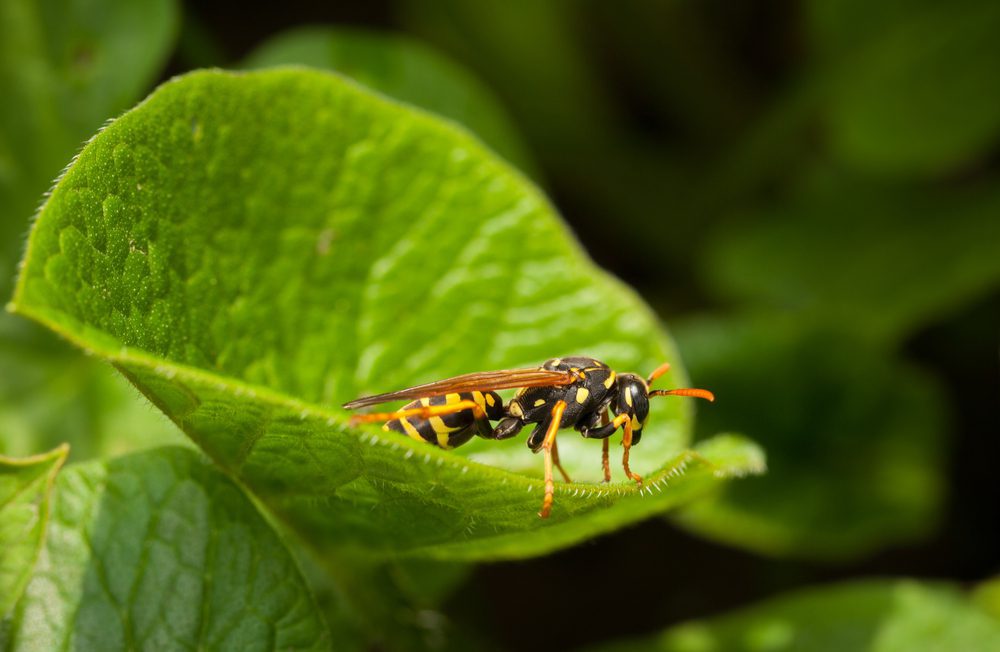The Role of Wasps: Check This Out!
You May Be Quite Surprised To Learn The Integral Role of Wasps in Pest Control and Gardening
Wasps, often misunderstood and feared, play an integral role in the ecosystem and are vital allies in maintaining the delicate balance of nature. While they may be notorious for their painful stings, wasps are highly effective predators of various garden pests, making them invaluable assets in pest control and gardening.
Here we aim to shed light on the importance of wasps in ecological systems, their role as natural pest controllers, and how their presence in gardens can promote a healthier and more sustainable environment. You will be surprised to see their benefit.
The Ecological Role of Wasps
Wasps belong to the Hymenoptera order, alongside bees and ants. There are various species, each having distinct ecological roles. One of the essential functions of wasps is their role as predators of insects and arthropods. They actively hunt and feed on caterpillars, aphids, flies, and other common garden pests.
This predatory behavior helps regulate the population of these pests, preventing infestations that can damage crops and plants. In this way, wasps contribute significantly to the ecological balance of their surrounding environment.
Wasps as Natural Pest Controllers
Many gardeners mistakenly view wasps as nuisances, but they are, in fact, valuable biological control agents. Unlike bees, wasps do not primarily focus on pollen collection. Instead, their main goal is to provide nourishment to their larvae. When wasp larvae hatch, they require a protein-rich diet, prompting adult wasps to seek out insect prey actively. They inadvertently help protect plants and crops by preying on various garden pests.
A significant advantage of wasps for insect pest control is their ability to seek out pests in hard-to-reach places. For example, aphids and caterpillars often hide on the undersides of leaves or within plant structures, making it difficult for conventional chemical sprays to reach and eliminate them effectively. However, wasps can access these crevices and eradicate the pests more efficiently without harming the plants.
Additionally, wasps can be a sustainable and environmentally friendly alternative to chemical pesticides. Pesticides not only harm beneficial insects like bees but can also lead to the development of resistant pest populations over time. Wasps in the garden reduce reliance on harmful chemicals, preserving the ecosystem’s overall health.
Encouraging Wasp Presence in Gardens
Creating an environment conducive to their needs is crucial to promote wasp populations in gardens. One of the key factors in attracting wasps is planting a diverse range of flowering plants. These flowers provide essential nectar and pollen, serving as a food source for adult wasps. The presence of flowering plants throughout the growing season ensures a steady supply of nourishment for the wasps.
It is also essential to allow some garden areas to remain undisturbed. Wasps prefer to build their nests in quiet, sheltered spaces. Avoid unnecessary disturbances in these areas to enable wasp colonies to thrive and continue their pest-controlling activities.
When dealing with wasps in the garden, handling them with care and respect is essential. Wasps are generally non-aggressive when left undisturbed. However, if their nests are accidentally encountered, contacting local NJ pest control experts for safe and effective solutions is best.
Need Help?
Now you know the role of wasps and that they play are essential pest control and gardening by preying on insects that can cause harm to plants and crops. Understanding the role of wasps and their ecological significance is essential, but you must never forget to keep your home, commercial or industrial property safe.
If you have a wasp problem that requires attention, contact NJ Pest Control today. We act quickly and efficiently always.

